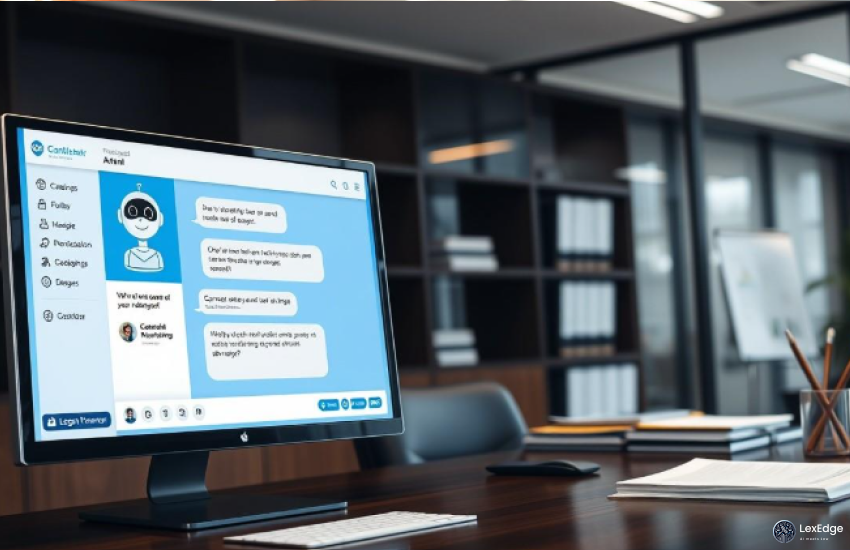AI-Powered Legal Chatbots: Revolutionizing the Legal Industry

AI-powered legal chatbots are transforming the legal industry by automating routine tasks, improving efficiency, and enhancing client service. From legal research to contract review and client onboarding, these tools offer powerful support to law firms and legal teams. Despite challenges like ethical concerns and adoption barriers, their future is promising with smarter features, personalization, and greater accessibility through voice and video.
Introduction The Legal Industry at a Turning Point

The legal field has always relied on tradition and expert knowledge, but now it’s changing with new technology. AI-powered legal chatbots are leading this change by offering new ways to provide, find, and manage legal services. As more people need legal help and expect faster, cheaper solutions, these smart tools are helping to reshape how legal work is done.
Background From Rule-Based Bots to Conversational AI

Legal chatbots started as basic tools that followed fixed rules to answer simple questions and handle routine paperwork. But with progress in language technology and machine learning, they have become much smarter. Modern legal chatbots can now understand complicated legal words, review case documents, and talk to clients in a helpful way, offering more support than ever before.
Core Use Cases and Effectiveness

AI-powered legal chatbots are now important tools used in law firms, company legal teams, and legal aid groups. They help in many ways, such as:
- Legal Research Help: They quickly find and summarize case laws and rules, saving lawyers time and improving accuracy.
- Making and Checking Contracts: They help create legal documents and check them for compliance, with clear references.
- Client Onboarding and Advice: They collect client information and set up meetings, making the process smooth and easy.
- Litigation Support: They organize case documents and suggest legal plans, so lawyers can focus on more complex work.
Keeping Up with Legal Changes: They send alerts about new laws and regulations to help businesses stay compliant.
Effectiveness Metrics
- Save time and improve work efficiency.
- Provide better service, which makes clients happier.
- Help manage resources by sorting and handling issues effectively.
Real-World Applications and Examples

In the legal industry, chatbots are used in different ways:
- Law Firm Websites: Chatbots help collect client information and work with tools like Smith.AI to turn more visitors into clients.
- In-House Legal Teams: They handle everyday legal questions and document requests through common messaging platforms, saving time.
- Contract Review Help: AI tools like V7 Go help review contracts and make the legal process clearer and more organized.
Challenges, Limitations, and Critical Viewpoints

Even though AI legal chatbots are helpful, they still face some big challenges:
- Ethical and Legal Rules: There are concerns about them giving legal advice without a license and keeping client data safe, so they must be used carefully.
- Limited Legal Thinking: Chatbots can only handle simple tasks. They can’t fully replace the deep thinking needed in real legal work.
- Accuracy and Trust: Chatbots need high-quality data and regular updates to stay correct and useful.
Hard to Adopt: Some people don’t want to change how they work, and small law firms may find chatbots too expensive or hard to set up.
Emerging Trends and Future Possibilities

The future of AI legal chatbots looks bright:
- Smarter AI Tools: Newer chatbots can now handle more complex tasks, helping lawyers work faster.
- Personalized Help: Chatbots are getting better at giving advice based on each user’s needs and questions.
- More Ways to Use Them: Chatbots can now work with voice and video, making them easier for more people to use.
- Clear and Trustworthy: They now include links and records that show how they got their answers, helping people trust the results.
Conclusion
AI legal chatbots are helpful tools that support traditional legal work. They take care of simple, repetitive tasks, so lawyers can focus on more important work. To start using them in your firm, you can run small test projects to see how well they work. It’s also important to make sure they are secure, train your team, and be open to change. Using these modern tools can help your firm offer better service to clients and work more efficiently.

